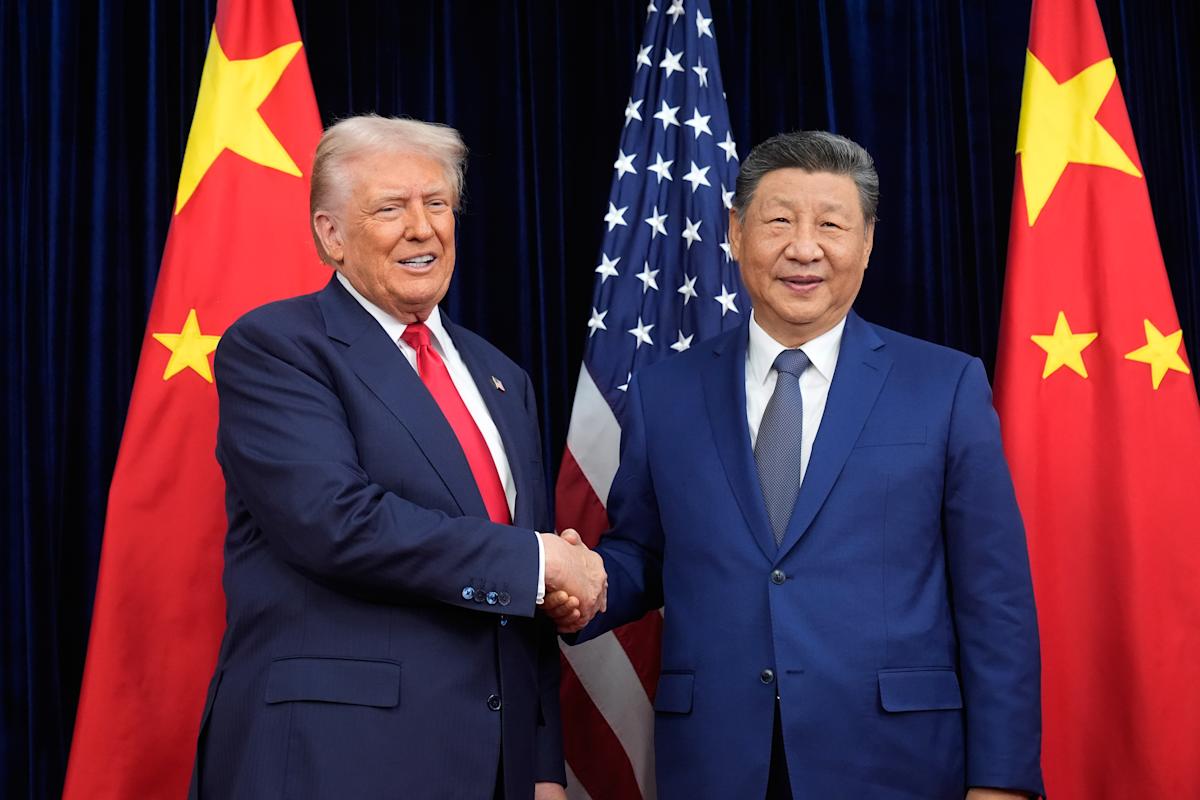President Trump and China’s Xi Jinping for the first time on Friday both publicly addressed more details of their emerging tariff and trade truce agreed to in South Korea. Trump on Friday floated further tariff reductions if China upheld its parts of the deal, while Xi warned against “breaking supply chains.”
Trump specifically floated eliminating fentanyl-related tariffs on China if it worked to stop the flow of exports from the country.
“As soon as we see that, we’ll get rid of the other 10%,” Trump told reporters.
The agreement struck between Trump and Xi came after months of chaos and confusion, putting on ice a trade war between the world’s two largest economies.
Here are some key details we know about the thaw:
The US tariff on goods related to the production of fentanyl will drop from 20% to 10% with a promise China would work “very hard to stop the flow.” That means overall tariffs on Chinese goods will be cut to 47% from 57%.
China will pause controls on its exports of rare earth minerals.
The US will mediate talks between Beijing and Nvidia’s (NVDA) CEO Jensen Huang over China’s use of restricted chips.
Trump said China would purchase more US energy as part of a wider trade truce, and hinted at an unspecified transaction involving Alaskan oil and gas.
China will resume buying “tremendous amounts” of US soybeans “starting immediately,” Trump said.
Despite questions about the truce’s ultimate durability, the moment represents a milestone for the US and China after Trump amped up trade threats against China almost immediately upon returning to office, rattling markets and unnerving investors.
Read more: What Trump’s tariffs mean for the economy and your wallet
Trump said the US and South Korea had reached a deal after months of negotiating on a framework agreement. Also, Trump and Japan’s first female leader, Sanae Takaichi, signed deals relating to trade and rare earths.
A spat over an ad featuring the late Ronald Reagan has grown into an international incident, with Trump threatening to raise tariffs on Canada by an additional 10%. Trump said he is stopping all negotiations with Canada.
The US Senate passed several resolutions this week that would end several of Trump’s country-specific tariffs, in a rare rebuke of the president from several members of his own party.
Next week, the US Supreme Court is set to hear a challenge to Trump’s most sweeping tariffs — the “reciprocal” country-by-country duties that you can see in the graphic above. A ruling against the tariffs — which would be in line with lower-court decisions — could have significant ramifications for Trump’s tariff strategy.
LIVE 132 updates
